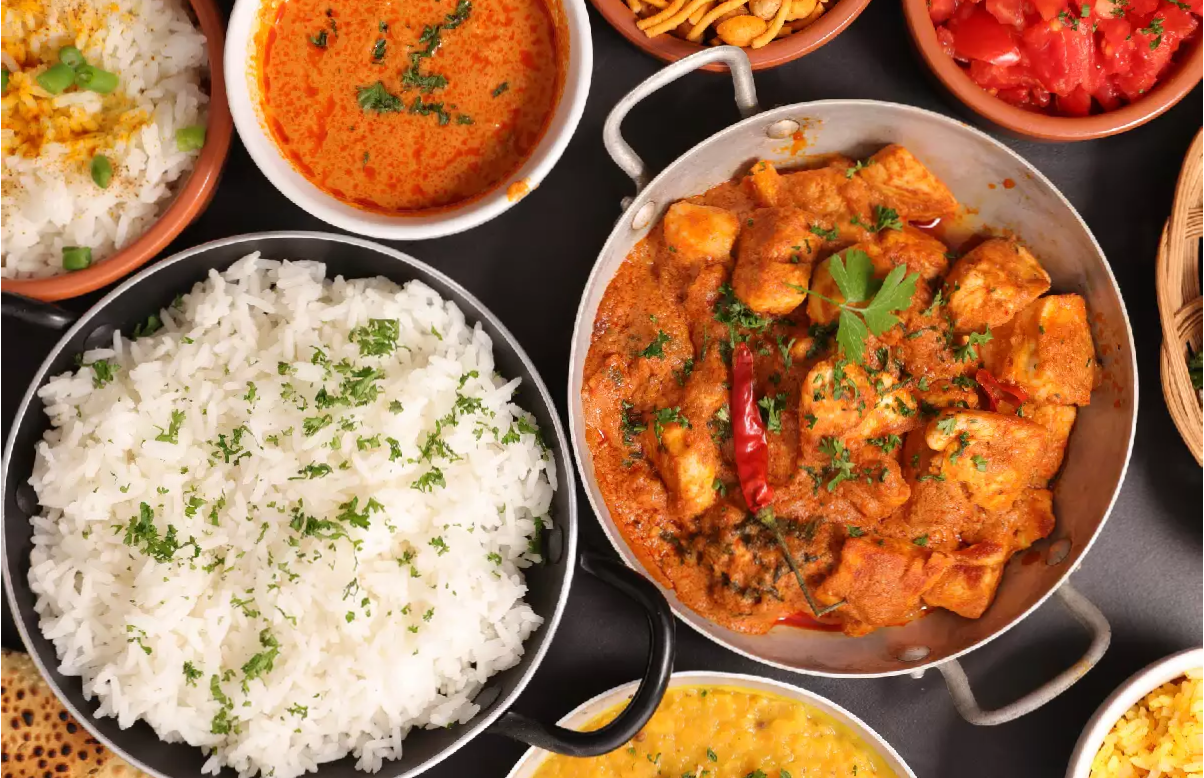Outline of the Article
- Introduction to Indian dinner
- Traditional Indian dinner dishes
- Main course
- Side dishes
- Nutritional benefits of Indian dinner
- Balanced nutrition
- Rich in spices and herbs
- Variety of vegetables and legumes
- Health benefits of Indian dinner
- Improved digestion
- Weight management
- Reduced risk of chronic diseases
- Cultural significance of Indian dinner
- Family bonding
- Festive occasions
- Tips for preparing a healthy Indian dinner
- Use of fresh ingredients
- Cooking methods
- Portion control
- Conclusion
Indian Dinner and Its Benefits
Indian dinner holds a special place not just in Indian cuisine but also in the hearts of food enthusiasts worldwide. Rooted in rich traditions and cultural diversity, Indian dinner is not just about satisfying hunger but also about nourishing the body and soul. Let’s explore the various facets and benefits of indulging in an Indian dinner.
Traditional Indian Dinner Dishes
Indian dinner typically consists of a variety of dishes that cater to different tastes and preferences. The main course often includes a combination of rice, bread, lentils, and meat or vegetable curries. Side dishes such as chutneys, pickles, and salads complement the meal, adding layers of flavor and texture.
Nutritional Benefits of Indian Dinner
One of the most significant advantages of Indian dinner is its nutritional value. The cuisine emphasizes a balanced diet that incorporates essential nutrients from various food groups. With its liberal use of spices and herbs, Indian cooking not only enhances the taste of dishes but also offers numerous health benefits. Additionally, Indian recipes often feature a wide array of vegetables, legumes, and grains, ensuring a diverse and nutrient-rich meal.
Health Benefits of Indian Dinner
Beyond just nutrition, Indian dinner offers several health benefits. The blend of spices and herbs used in Indian cooking not only adds flavor but also contributes to improved digestion and metabolism. Many traditional Indian ingredients, such as turmeric, ginger, and garlic, are known for their medicinal properties, aiding in digestion, boosting immunity, and reducing inflammation. Furthermore, the emphasis on whole foods and plant-based ingredients in Indian cuisine promotes weight management and reduces the risk of chronic diseases such as diabetes and heart disease.
Cultural Significance of Indian Dinner
Indian dinner is more than just a meal; it’s a cultural experience that fosters family bonding and community connections. In Indian households, dinner time often serves as an opportunity for family members to come together, share stories, and strengthen relationships. Moreover, Indian cuisine plays a central role in festive occasions and celebrations, where elaborate meals are prepared to mark special events and festivals.
Tips for Preparing a Healthy Indian Dinner
While Indian cuisine offers numerous health benefits, it’s essential to prepare dishes mindfully to maximize their nutritional value. Opting for fresh, locally sourced ingredients ensures quality and flavor. Additionally, incorporating a variety of cooking methods such as grilling, steaming, and sautéing helps retain nutrients while minimizing added fats and oils. Portion control is also key to enjoying Indian dinner without overindulging, allowing for a balanced and satisfying meal.
Conclusion
In conclusion, Indian dinner offers a delightful blend of flavors, nutrition, and cultural richness. From its diverse array of dishes to its myriad health benefits, Indian cuisine continues to captivate and nourish people worldwide. By embracing the traditions and principles of Indian cooking, individuals can experience the joys of a wholesome and fulfilling dining experience.
Unique FAQs
- Is Indian dinner suitable for vegetarians and vegans?
- Yes, Indian cuisine offers a wide range of vegetarian and vegan options, making it suitable for individuals with plant-based diets.
- Can I enjoy Indian dinner if I have dietary restrictions or food allergies?
- Absolutely! With its emphasis on fresh ingredients and diverse flavors, Indian cuisine can be easily adapted to accommodate various dietary needs and preferences.
- What are some popular Indian dinner dishes I should try?
- Some must-try dishes include butter chicken, palak paneer, biryani, dosa, and chana masala.
- How can I make my Indian dinner healthier?
- Opt for lean protein sources, incorporate plenty of vegetables, use minimal oil and ghee, and moderate your portion sizes.
- Are there any specific spices or ingredients I should stock up on for Indian cooking?
- Essential spices include turmeric, cumin, coriander, garam masala, and fenugreek. Additionally, staples like lentils, rice, and various flours are commonly used in Indian recipes

